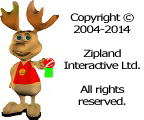Earthquake in Zipland Video Gallery
The Earthquake in Zipland Video Gallery includes a collection of video demonstrations or episode examples. We are currently working on uploading more videos, so check in regularly:
Error 404 (Not Found)!!1General Explanation of the Game:
How to Play the First Episode:
Note: The following video explains the basic functions of how to play the game, including how to complete the first episode. If you are interested in trying to complete the episode without any outside help, it is recommended to skip this video. Before your child begins playing the full game, it is recommended that the parent or helping professional view this video in order to understand the basic game features.
Parents and Helping Professions can download the Parent’s Guide for a complete list of tips on opening up the lines of communication with their child during this episode and increase it’s effectiveness, including questions they should ask the child, information parents may want to elicit and messages recommended to convey to the child during this scene.
The Forest Episode (Loyalty Conflicts):
During theForestepisode, the hero finds himself walking along a path. When he reaches a crossroad, he has to decide whether to go right or left, while each parent tries to ‘pull’ him to their side. This symbolic situation in the game represents how often children of divorce may find themselves in a powerful conflict of loyalty between mother and father in issues such as: whom do they want to live with, whom should they live with, what is right? Where, in fact, is home? Who needs them more, who will stay with them and take care of them? Though the subject of divorce is painful, the humoristic and witty dialogue dissolves much of the stress experienced by the child and enables him to approach the above questions. Through our experience working with children of all ages, we have found this scene to be very empowering to the child. In several cases, the children initiated showing the episode to their parents expressing to them how they relate it to their current home situation. The Parent’s Guide offers tips and information on how to discuss these difficult issues with their children.
Parents and Helping Professions can download the Parent’s Guide for a complete list of tips on opening up the lines of communication with their child during this episode and increase it’s effectiveness, including questions they should ask the child, information parents may want to elicit and messages recommended to convey to the child during this scene.
The Quest Journal:
The following excerpt has been taken from the Parent’s Guide – What Didn’t You Say?:
Journal writing is a therapeutic activity. Very often children who are unable to speak directly about how they feel are able to express themselves through writing. Writing can be an experience that helps children release tensions that are bottled-up inside them and sometimes just the act of writing is helpful even if no one knows what the child had written. By writing about one’s experiences, one is able to gain some distance or perspective, which in turn may lead to a fresher and healthier perspective on things. Writing helps the child move some of his concerns outside of himself in a way that doesn’t erase the thoughts and feelings but allows him to continue to function in a way that is less emotionally charged.”
The Quest Journal is an important part of the game in which the child is encouraged to express his thoughts and feelings in response to the thoughts and feelings of the main character or even the child’s experience of the game and what it arouses in him.
The child is rewarded for writing in the journal by getting valuable objects and hints about the game that help him to continue his quest (Hints may be accessible after 10 words are written in the journal as well as pressing the ‘I Need Help’ button).
The child is also encouraged to make use of the words that appear in the upper portion of the journal screen in order to enrich his or her emotional vocabulary. By doing so it will become easier for the child to express himself in words and less necessary for him to express himself in actions. Once the child has finished writing, he may also choose to print out what he has written.
Parents and Helping Professions can download the Parent’s Guide for more tips and suggestions on how to use the Quest Journal with the child.
The Earthquake in Zipland Forest episode highlights the difficulty of loyalty conflicts. Children of Divorce find themselves choosing between two fighting parents.





